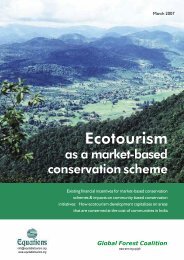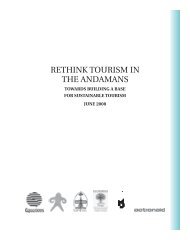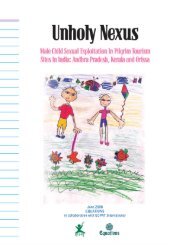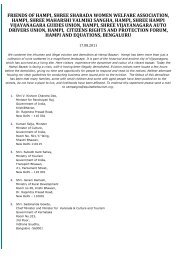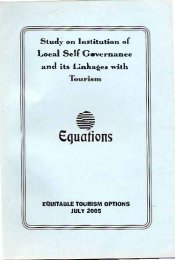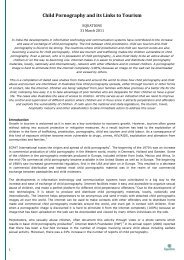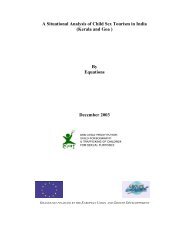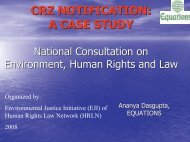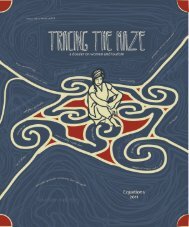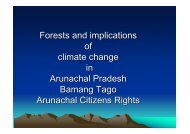Nilgiris Biosphere Reserve - Equitable Tourism Options
Nilgiris Biosphere Reserve - Equitable Tourism Options
Nilgiris Biosphere Reserve - Equitable Tourism Options
You also want an ePaper? Increase the reach of your titles
YUMPU automatically turns print PDFs into web optimized ePapers that Google loves.
partnerships with both private and public sectors, at all levels;<br />
(b) Develop programmes, including education and training programmes,<br />
that encourage people to participate in eco-tourism, enable indigenous<br />
and local communities to develop and benefit from eco-tourism, and<br />
enhance stakeholder cooperation in tourism development and heritage<br />
preservation, in order to improve the protection of the environment,<br />
natural resources and cultural heritage;<br />
(c) Provide technical assistance to developing countries and countries<br />
with economies in transition to support sustainable tourism business<br />
development and investment and tourism awareness programmes, to<br />
improve domestic tourism, and to stimulate entrepreneurial<br />
development.<br />
(d) Assist host communities in managing visits to their tourism attractions<br />
for their maximum benefit, while ensuring the least negative impacts on<br />
and risks for their traditions, culture and environment, with the support<br />
ofthe World <strong>Tourism</strong> Organization and other relevant organizations;<br />
(e) Promote the diversification of economic activities, including through the<br />
facilitation of access to markets and commercial information, and<br />
participation of emerging local enterprises, especially small and<br />
medium-sized enterprises.<br />
44. (b) Promote the ongoing work under the Convention on Biological<br />
Diversity on the sustainable use on biological diversity, including on<br />
sustainable tourism, as a cross-cutting issue relevant to different<br />
ecosystems, sectors and thematic areas.<br />
The sustainable tourism guidelines in the World Summit on Sustainable<br />
Development in its Final Plan of Implementation (point 43) states to<br />
promote sustainable tourism development and capacity building in order to<br />
contribute to the strengthening of rural and local communities.<br />
In the Final Plan of Implementation, the sustainable tourism guidelines in<br />
World Summit on Sustainable Development, it outlines the need to<br />
(point 43) Promote sustainable tourism development, including nonconsumptive<br />
and eco-tourism, taking into account the spirit of the<br />
International Year of Eco-tourism 2002, the United Nations Year for Cultural<br />
Heritage in 2002, the World Eco-tourism Summit 2002 and its Quebec<br />
Declaration, and the Global Code of Ethics for <strong>Tourism</strong> as adopted by the<br />
World To urism Organization in orderto increase the benefits from tourism<br />
<br />
El:!Ualk!M<br />
NiItzgiris : Fading Glory 56



